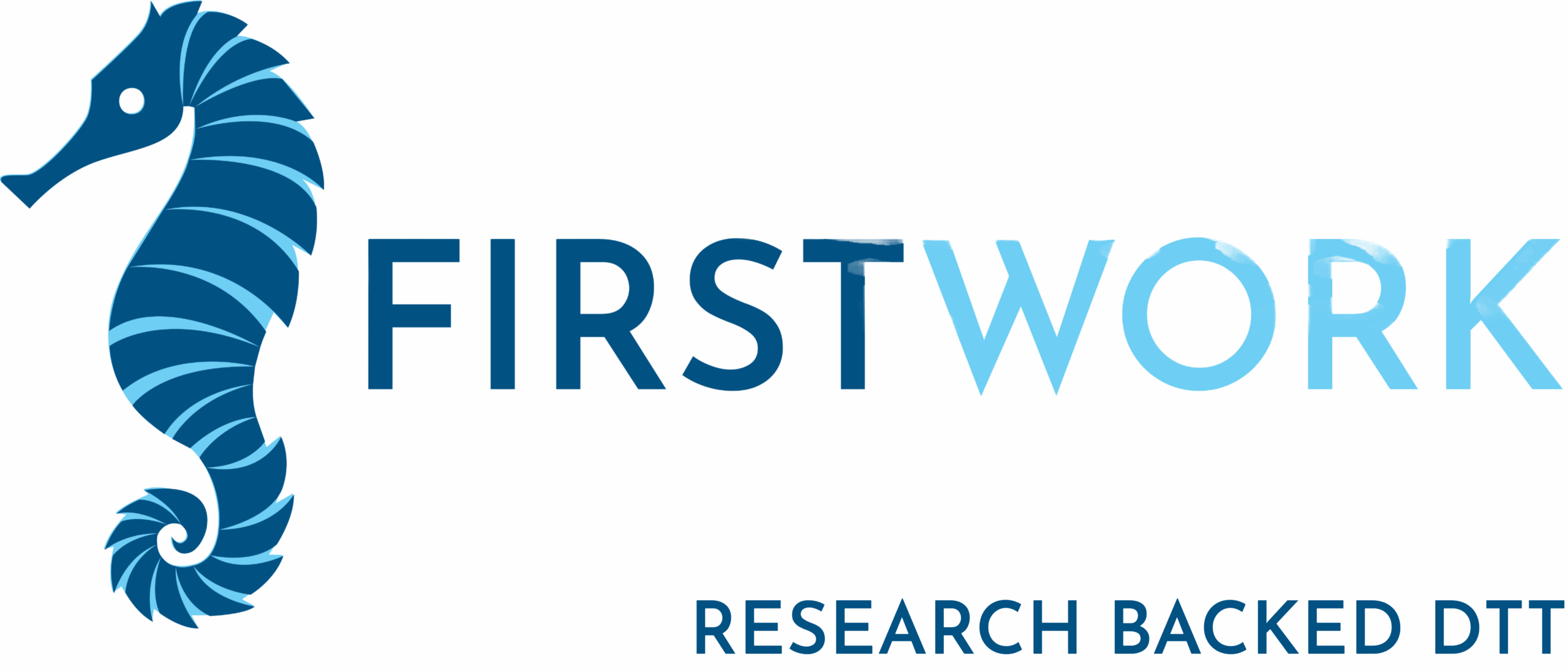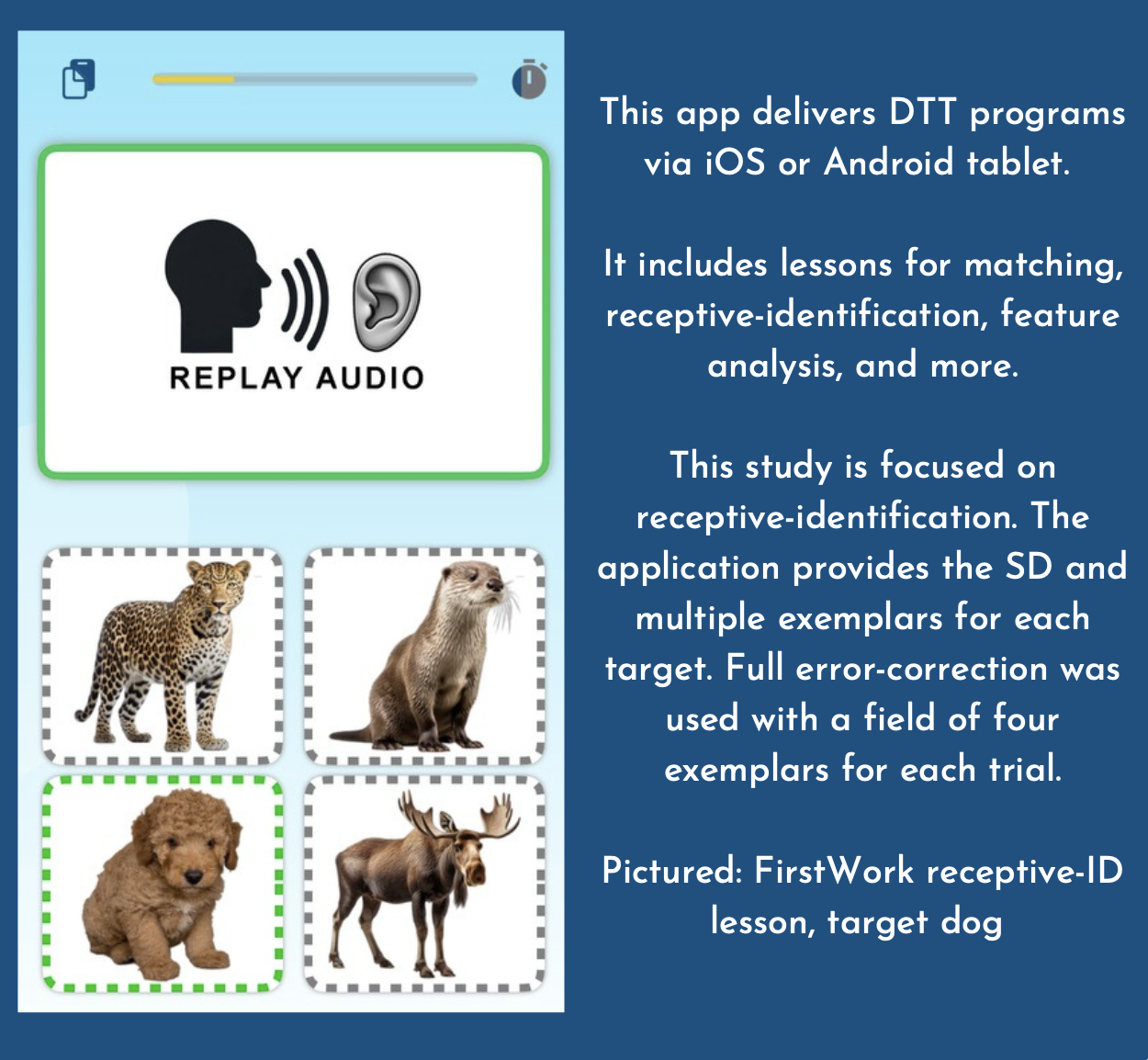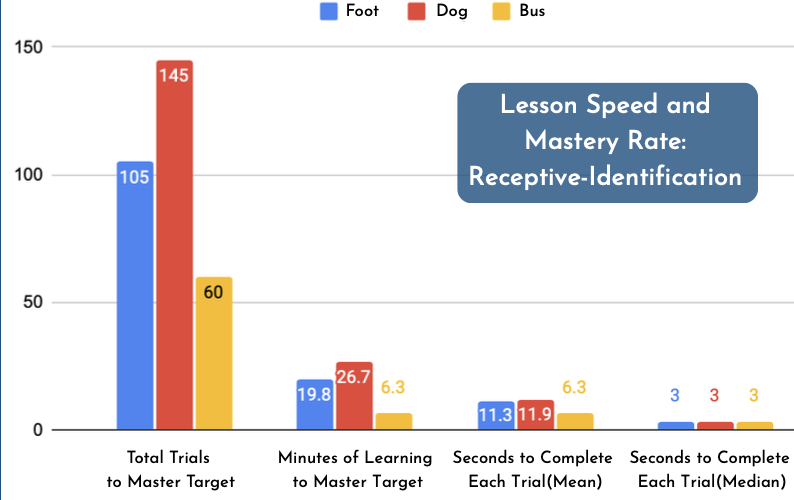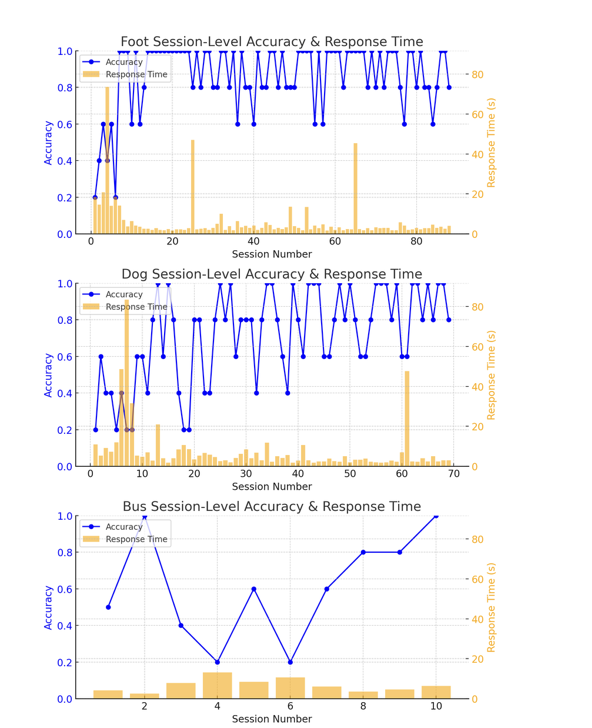In a controlled, single-participant study, a 3-year-old learner with ASD moved from near-zero correct responses under traditional, flashcard-based Discrete Trial Training (DTT) to rapid mastery of three receptive-identification targets “foot,” “dog,” and “bus” using the FirstWork app. This study was implemented by the Possibilities ABA team in conjunction with FirstWork and faculty from Augustana University.
Research Questions
- Acquisition: How does FirstWork affect the rate and level of correct responding for novel receptive-identification targets?
- Efficiency: What are the trial-count, session-duration, and latency metrics associated with mastery using the app?
- Skill Maintenance & Latency: Once acquired, how rapidly does the learner respond to mastered targets?






